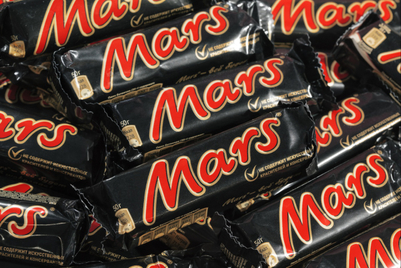| PARTNER CONTENT |
The pace of change is unstoppable, big data demands two-way trust, and the ability to deliver personalised marketing at scale is tantalisingly close—but technology is no substitute to making an emotional connection with consumers.
Those are the main takeaways from a series of interviews Campaign Asia-Pacific, in association with Tencent, held on the wings of Cannes Lions International Festival of Creativity.
“I think it’s a very exciting time to be in marketing, as there is a lot of change going on,” said Keith Weed, chief marketing and communications officer for Unilever. “Arguably, there has been more change in the past five years than there had been in the previous 25.” He said there was a powerful shift “from mass-marketing to massive customisation”, and that he hoped developments in ad-tech and targeting of personalised content would enable “much more one-to-one relationships with brands, and individuals”.
Bruce McColl, global chief marketing officer for Mars, said that although he had “no idea what the future of marketing will look like”, there were “a few ground rules that we can assume are going to happen”.
“We are seeing a massive blurring between the old fields of publishing and retailing, and that is both exciting and challenging for manufacturers,” McColl said, explaining that agility was the key factor that would determine whether brands succeed or fail.
“It’s very clear from a Mars perspective that we don’t have all the answers about what the future holds, and I don’t think any one person can,” McColl said. “But the more you connect with other people from different fields and have a shared perspective, then the quicker you can respond to new opportunities. I think the companies that are going to win in the future are those that collaborate best.”
One example of such collaboration is the way Tencent leverages insights and data from its online media, social and communications products to help agencies and brands connect with consumers as never previously possible.
McColl said he had been “blown away” by the potential after his first meeting with the internet giant. “I walked away thinking, ‘Oh my god, the future is here’,” he said. “The whole ecosystem they have created, the understanding and the power it is for the consumer: this is not just about extracting data, it’s about making consumers’ lives easier and better. It changed my perception of what digital marketing could be.”
Jean Lin, global CEO of Isobar, said the future of marketing lay in following the “clear trend” towards connecting content strategy with technology. “There is a need to bring brand inspiration and commercial interaction and transactions closer together with singularist experiences. We have to make better experiences, make better transactions, to better enable brands to be compelling to consumers,” she said.
Technology had a crucial role to play, Lin added, in helping brands deliver “content that is useful” to consumers in a responsive manner. “If you look at all the powerful social media channels, like Tencent, their ecosystem actually creates the opportunity for stories, technologies, social contacts and interactions together. That’s a key part — the integration is key.”
Such integration can only happen with vast amounts of data on consumer behaviour, spanning multiple platforms to build a 360 degree picture of individuals, and immensely powerful analytics to tie consumers with the right messages — a recipe until recently thought the stuff of science fiction.
But this is one area where China has not simply caught up with the West, in fact it’s right at the forefront of innovation, said Norm Johnston, Mindshare’s global chief strategy and digital officer. “The narrative we’ve had over the last 10 years or so has always been that in China they are simply copying Twitter or they are copying Facebook, and it’s just not true,” he said. “When you look at what’s been developed with things like WeChat, it’s more sophisticated than Twitter, it’s better than Facebook; it’s the future. In fact, when you look at what Twitter and Facebook are doing, they are trying to catch up with things like WeChat.”
John Murray, president of Amplifi Global, said that his experience dealing in 124 countries told him the world was about to enter an “era of trust”.
“Whether that’s with Uber or with WeChat, or whether it’s with processes and tools in France or Germany, consumers are giving up data upon themselves,” Murray said. “What we think is the new era will be one of trust; you need to have trusting relationships with the brands you love and the brands you enjoy.”


.jpg&h=334&w=500&q=100&v=20250320&c=1)


.jpg&h=334&w=500&q=100&v=20250320&c=1)
.jpg&h=334&w=500&q=100&v=20250320&c=1)


.png&h=334&w=500&q=100&v=20250320&c=1)






.png&h=268&w=401&q=100&v=20250320&c=1)


